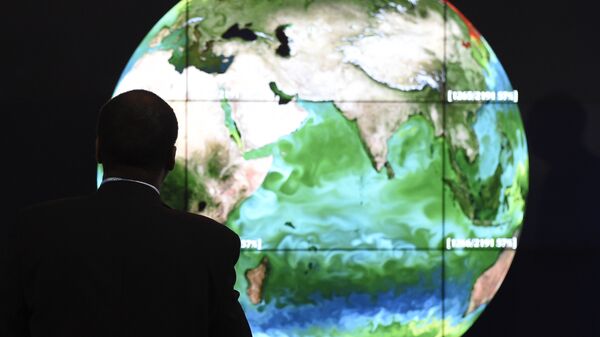Released ahead of the Munich Security Conference on February 17, the report warns that populist and "illiberal forces" currently sweeping the world threaten the global liberal order and raise questions about many of the international institutions that have underpinned this order since World War Two.
"The world is facing an illiberal moment. Across the West and beyond, illiberal forces are gaining ground," the report said.
Post-Truth, Post-West, Post-Order? Our Munich Security Report 2017 — now available for download: https://t.co/8ggMod0XMf #MSC2017 #MSCreport pic.twitter.com/m3y8EgEgYp
— Security Conference (@MunSecConf) February 13, 2017
"The past twelve months have been a resounding rejection of the status quo. In several elections and referenda, political outsiders succeeded, while the establishment was dealt major blows."
"Populist parties are now part of the government in about a dozen Western democracies. And even in countries where populists only received a small share of the vote, they often exert a defining influence by shifting the debate or pressuring mainstream parties to adopt different policy agendas."
'Cultural Backlash' Against Globalization
The findings from the report come amid a surge in support for so-called populist or anti-establishment movements across the West, witnessed through Donald Trump's US election win, the UK's decision to leave the EU, and the increased Euroskeptic sentiment across Europe.
The Munich security findings described those events as part of a "cultural backlash" against globalization.
Populism is fueled by globalisation discontent— People fear social decline, unfair distribution and cultural leakage https://t.co/5MuavvTLmP pic.twitter.com/05H8WzjOAH
— Steven van Ostaayen (@SvOstaayen) January 28, 2017
"The main dividing line in politics runs less and less between left and right but between a liberal cosmopolitan pole and a populist (or even xenophobic authoritarian) one. Populist parties reject the cultural modernization in Western societies and revolt against what they perceive as threats to the nation, ranging from immigration and cosmopolitan elites to international institutions. They dismiss pluralism and liberalism, essential elements of liberal democracies.
"The rise of the populists has rapidly become a systemic challenge that threatens to undermine the liberal international order the world's liberal democracies have built and upheld since the end of World War II."
An Era of 'Illiberalism'
Among the concerns raised in the report is the increase in support for political leaders and groups advocating authoritarian solutions to current problems.
Researchers pointed to some of Donald Trump's comments — attacking the media and speaking in support of torture practices as part of interrogation methods, while in Turkey, President Recep Tayyip Erdogan's crackdown on the media and the civil service following last year's failed coup, has also raised concerns about the state of democracy in the country.
At #MSC2017 kick-off event, @Ischinger shows some #MSCreport charts. All of them are available for download here: https://t.co/8ggModizaP pic.twitter.com/vxtht4YZwd
— Security Conference (@MunSecConf) February 13, 2017
Backing up these concerns, a recent report by the Freedom House think tank found that 2016 was the 11th consecutive year where there were net declines in political rights and civil liberties worldwide.
Troubling trends: Nearly one-quarter of the countries registering declines in 2016 were in Europe. #FreedomReport
— Freedom House (@FreedomHouseDC) January 31, 2017
These trends have led researchers to warn that the world may be entering a "post-West" era, whereby global values experience a dramatic shift.
"Are we entering an era of illiberalism, where authoritarian governments are going to replace more and more traditional Western, value-based democracies? I think it is right for us to be concerned about this crisis, this decline of the West — the disappearance of the classic leadership nation of the West, the United States," said Wolfgang Ischinger, chairman of the Munich Security Conference.
Questions Over International Institutions
The report says that given the shift in global preferences, many of the international institutions that have underpinned the global order may come under increased speculation about their suitability for the future.
These fears have been heightened by Trump describing NATO as "obsolete," a breakdown in trade relations such as with the Transatlantic Trade and Investment Partnership (TTIP) and the Trans-Pacific Partnership (TPP), while there are concerns over the future of the European Union following Brexit and an increase in Euroskepticism across the continent.
Even thou #UN proved to be ineffective, if #Trump cuts funding for it in order to deminish it, what are the alternatives we are left with?
— IVANE ABASHIDZE (@IvaneAbashidze) January 25, 2017
"Is global governance coming apart at the seems? Do our international institutions work as they should be working? Look at the United Nations, look at NATO, look at the OSCE, which is desperately trying to help resolve the Ukraine conflict. [There are] many questions regarding the stability of global governance, about the validity and the strength of the international system, of global order," Ischinger said.


